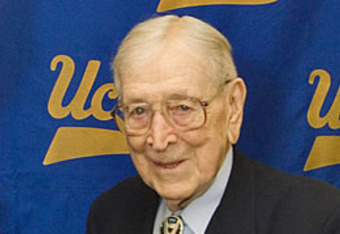Positive Leadership Limited is a strategic leadership and corporate finance advisory firm. We use our considerable experience to provide unique perspectives and innovative solutions which help corporate leaders unlock maximum value from complex business challenges. There is no dress rehearsal for delivering answers to critical business challenges. When you are under intense pressure to succeed, we help deliver the vitally important marginal gains which let your business excel and win.
Friday, March 30, 2012
Positive Leadership: The Secret of Enduring Companies
Thursday, March 29, 2012
Positive Leadership: #gostanford Pre-Game Speech
With pre-game speeches like this they should be in good shape!
Positive Leadership: #gostanford Pre-Game Speech
Positive Leadership: Why Clients Work With Us
Positive Leadership: Why Clients Work With Us
Wednesday, March 28, 2012
Positive Leadership: Freedom
Today, The George W. Bush Presidential Centre launches The Freedom Collection – a ground-breaking effort to document the struggle for human freedom and democracy around the world. In anticipation of the launch, Dr. Condoleezza Rice talks about the importance of the Freedom Collection and what freedom means to her.
Positive Leadership: Freedom

Positive Leadership: Attitude Matters More Than Skill
- Coachability (26%): The ability to accept and implement feedback from bosses, colleagues, customers, and others.
- Emotional Intelligence (23%): The ability to understand and manage one’s own emotions and accurately assess others' emotions.
- Motivation (17%): Sufficient drive to achieve one’s full potential and excel on the job.
- Temperament (15%): Attitude and personality suited to the particular job and work environment.
- Technical Competence (11%): Functional or technical skills required to do the job.
Positive Leadership: Attitude Matters More Than Skill

Tuesday, March 27, 2012
Positive Leader: Becoming a Global Leader
Positive Leader: Becoming a Global Leader

Monday, March 26, 2012
Positive Leadership: Purpose is Fundamental to Winning
We recently came across a post by a young motivational speaker named Jullien Gordon which got us thinking about the scores that really matter in life. According to Jullien, the first (or 4.0 GPA) that really matters relates to personal, intellectual, social and financial capital. Like an academic GPA, you're in complete control and can increase your score by developing each of these areas:
Personal: Get to know yourself. Here are our three 'killer' questions: What's my five year dream? When am I at my best? What will I never do?
Intellectual: Develop your areas of expertise. Be curious. Be creative.
Social: Grow your social network. This has nothing to do with Facebook and everything to do with the people cheering you on, supporting your professional and personal growth.
Financial: This is the intersection of the other three areas - when the right people are aware of your skills and strengths, financial opportunities will start appearing.
Positive Leadership: Purpose is Fundamental to Winning

Saturday, March 24, 2012
Friday, March 23, 2012
Positive Leadership: Is Ambition Good For You?
Positive Leadership: Is Ambition Good For You?
Thursday, March 22, 2012
Positive Leadership: Leadership Lessons from Coach K
Positive Leadership: Leadership Lessons from Coach K
Wednesday, March 21, 2012
Tuesday, March 20, 2012
Positive Leadership: 'Cometh the Hour, Cometh the Man'
Positive Leadership: 'Cometh the Hour, Cometh the Man'
Monday, March 19, 2012
Positive Leadership: Improving Your Presentation
Positive Leadership: Improving Your Presentation
Sunday, March 18, 2012
Friday, March 16, 2012
Positive Leadership: Goosebumps thanks to Adele are Powerful
Positive Leadership: Goosebumps thanks to Adele are Powerful
Thursday, March 15, 2012
Positive Leadership: Valuing Families and Work-Life Balance
The business community is due for a change in the way it values families and work-life balance, Koehn says. She addresses this in three parts.
Large companies are struggling to retain top talent, half of whom or more are women, Koehn says. Improvement is needed in enabling a woman to maintain her career and have a life outside of work — including having and raising a child — that goes beyond “a kind of toggle switch” in which a woman leaves and then “tries to get back in.”
Corporations need to have open discussions about work-life balance, including what it means to have a family. It’s not enough to discuss “work-life balance” or “work-family,” Koehn says. What is needed is “a more nuanced dialogue that’s in keeping with the … difficulty and messiness of trying to work well and live well as a family member, a parent and a citizen,” she says.
Businesses don’t foster values that include men and women as units of a family, particularly among large corporations, Koehn says. Few include family as a core part of their mission or values, and “yet everyone has a family, and everyone is very much affected in terms of the possibilities and their paths by what that family is and what it becomes.”
Positive Leadership: Valuing Families and Work-Life Balance

Wednesday, March 14, 2012
Positive Leadership: The Role of Imagination in Leadership
One headline that caught our attention was the role of imagination in leadership. Senior leaders from Intel, DreamWorks and Current TV among others give their version as to how imagination is crucial to good leadership.
Imagination allows leaders to see opportunities and obstacles that others can't, it fosters collaboration and creativity, and it creates energy, all of which lead to motivation. Imagination fuels success and a winning attitude. Imagination gives us the courage to wonder 'what if'.
Positive Leadership: The Role of Imagination in Leadership

Tuesday, March 13, 2012
Positive Leadership: Being a Role Model
What kind of a role model are you going to be for them?
NCAA legend, the late Coach John Wooden shares some thought provoking words in this video directed by Spike Lee.
Positive Leadership: Being a Role Model

Monday, March 12, 2012
Positive Leadership: Leadership is a Choice
Positive Leadership: Leadership is a Choice
Sunday, March 11, 2012
Positive Leadership: One of the Leaders!
Positive Leadership: One of the Leaders!

Friday, March 09, 2012
Positive Leadership: Integrity
Positive Leadership: Integrity

Thursday, March 08, 2012
Positive Leadership: Rethinking the Purpose of Business
Positive Leadership: Rethinking the Purpose of Business

Wednesday, March 07, 2012
Positive Leadership: Combat Complacency
Positive Leadership: Combat Complacency
Tuesday, March 06, 2012
Positive Leadership: Conscious Business
John Mackey, the CEO of Whole Foods Market chain, has loftier goals than getting Americans to eat healthy foods, one of the missions of his grocery empire. He is out to change American business as well, putting it on the path to higher consciousness.
Positive Leadership: Conscious Business
Monday, March 05, 2012
Positive Leadership: The Rewards of Saying No
Positive Leadership: The Rewards of Saying No

Friday, March 02, 2012
Positive Leadership: The Power of Positive Thinking
Positive Leadership: The Power of Positive Thinking

Thursday, March 01, 2012
Positive Leadership: Sustaining Success
Positive Leadership: Sustaining Success


























